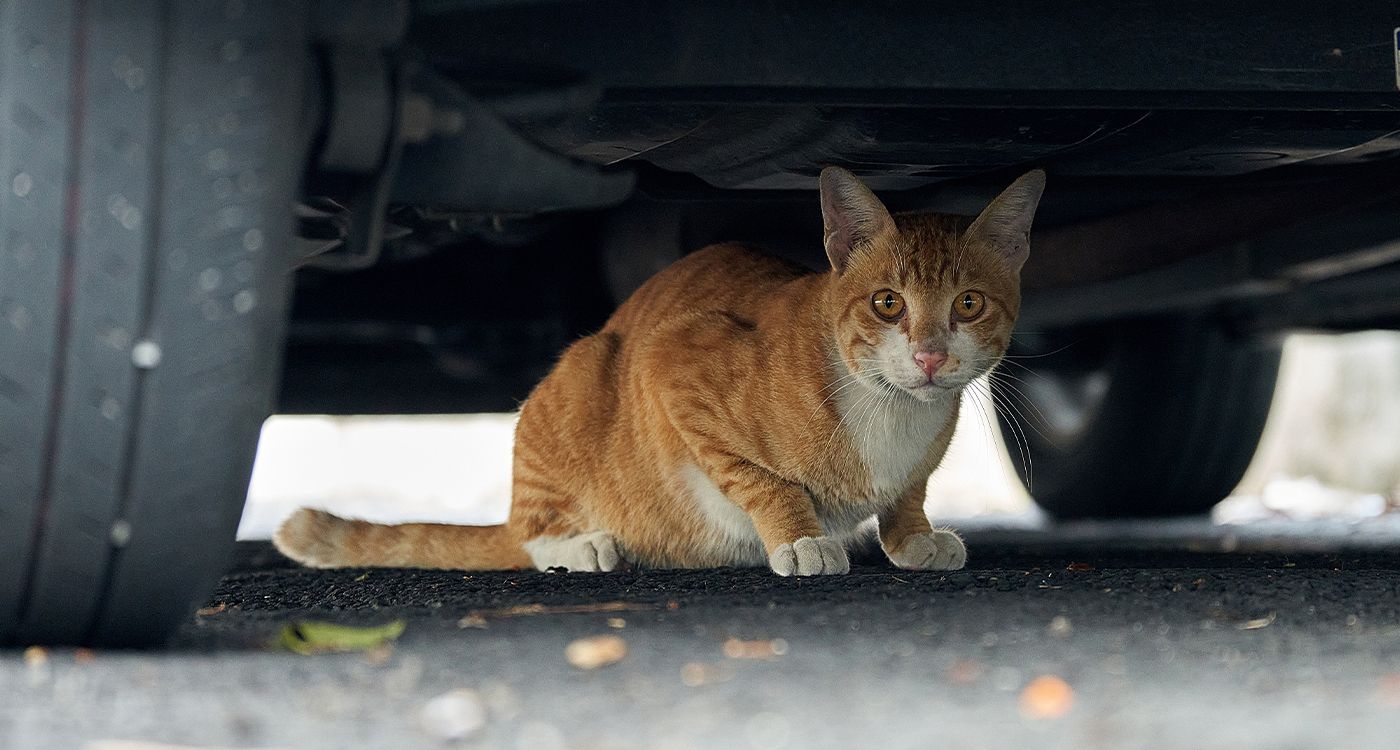
At Beirut International Airport (BIA), between the hallways and the boarding gates, two cats, Fustok and Karkar, found a makeshift refuge. They settled at Gate 2, enduring a harsh environment marked by human neglect and mistreatment..
Like many abandoned animals in Lebanon, Fustok and Karkar endured the trauma of abandonment. Left behind by their owners during the Hezbollah-Israel war, they found some safety thanks to the compassion of airport staff. Despite strict regulations forbidding animals on the premises, some employees took it upon themselves to feed the strays and offer them comfort, hoping to eventually find a more permanent solution.
However, as more passengers arrived and were stranded for long hours in the waiting areas, this solidarity waned. Unable to tolerate the distressed animals, some travelers resorted to mistreating them, sometimes intentionally. While some acted out of ignorance, others did so out of pure malice.
Fustok, a deaf cat, was abandoned before a flight, with the assumption that his owners would return. For three days, he remained still, hopelessly waiting for their return. In the meantime, passengers unknowingly stepped over him, causing severe neck injuries. He was starving, exhausted and near death. It wasn’t until a compassionate person stepped in that Fustok was rescued, treated and eventually adopted. Today, after two months of care, he has regained some of his vitality.
Karkar, meanwhile, sought shelter under an escalator, too scared to move even for food. Mistreated and trembling from fear and pain, he was eventually taken to a hospital by a compassionate individual. Karkar’s condition remains critical, with multiple injuries and internal bleeding. His future is uncertain, but whatever happens to him, those responsible for his suffering remain indifferent.
Fustok and Karkar are just two examples among many. The streets of Beirut, and Lebanon as a whole, are scattered with abandoned animals. Once pets in homes, they are now left to survive on their own in a harsh environment.While instincts may guide them, it is far from enough to ensure they live with dignity.
Although Lebanon has an animal protection law, it is largely ignored and rarely enforced. This legal gap mirrors a society that, despite the compassionate principles espoused by religious teachings and human values, continues to subject its animals to cruelty and neglect.
The issue goes far beyond the treatment of animals. Lebanon is facing a moral decline. Many people, in an attempt to justify their actions, offer weak excuses such as the difficult situation, internal conflicts or even natural disasters. In this culture of shifting blame, harm thrives while goodness struggles to prevail.
Animals, both domesticated or wild, share our daily lives, and it is crucial to rethink their role in our society. Awareness campaigns could start educating younger generations on respecting and protecting these innocent creatures. If each individual made an effort, not to be “good” to animals, but simply to avoid causing them harm, it would be enough to improve the condition of these vulnerable beings.
Lebanon, like many other countries, still has a long road ahead to overcome cruelty and indifference. Animals ask only for respect, not mistreatment. But perhaps before we can make peace with the creatures we share this world with, humanity must first acknowledge its own shortcomings.



Comments